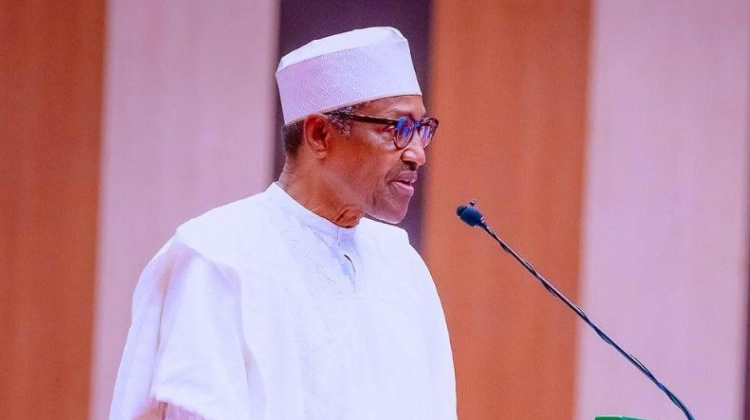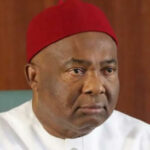
As the ongoing strike by the Academic Staff Union of Universities enters its eighth month, the President, Major General Muhammadu Buhari (retd.), said corruption in the education sector is undermining the Federal Governments’ investments.
This was as he challenged the notion that the incessant strikes, especially by unions in tertiary education, often indicate gross underfunding, saying “those who go on prolonged strikes on flimsy reasons are no less complicit.”
Buhari was speaking at the Fourth National Summit on Diminishing Corruption in the Public Sector held at the State House, Abuja, on Tuesday.
This comes about eight months after ASUU, on February 14, embarked on a one-month warning strike.
Other associations such as the Senior Staff Association of Nigerian Universities, Non-Academic Staff Union of Allied and Educational Institutions and National Association of Academic Technologists later followed suit, shutting down their activities in universities nationwide.
Although SSANU and NASU have since called off their industrial action, ASUU is yet to. This stems from, among other things, the FG’s refusal to acquiesce to the payment of workers’ salaries for the period of the strike.
Speaking further, Bhari said monies disbursed to the ministry of education alone constitute only a fraction of the government’s total commitment to the sector.
Therefore, he called on pundits to widen their scope to include allocations to the Universal Basic Education, transfers to TETFUND and refunds from the Education Tax Pool Account to TETFUND etc.
He also noted that corruption in the expenditure of internally-generated revenue of tertiary institutions had not received due attention from stakeholders.
Therefore, he urged stakeholders to advocate transparency in the IGRs of educational institutions and how such funds are expended.
Buhari said, “This year’s summit will mirror how corruption undermines educational policies and investments, and creates an unfriendly learning environment for our youths.
“Incessant strikes especially by unions in the tertiary education often imply that government is grossly underfunding education, but I must say that corruption in the education system from basic level to the tertiary level has been undermining our investment in the sector and those who go on prolonged strikes on flimsy reasons are no less complicit.
“The 1999 Constitution places a premium on education by placing it on the Concurrent List, thereby laying the responsibilities of budgeting and underwriting qualitative education on both the Federal and State Governments.”
He argued that monies disbursed to the Education Ministry do not reflect the totality of the government’s allocation to the sector and should not be construed as such.
“The total education budget for each year is, therefore, a reflection of both federal and state budgets and should be viewed with other financial commitments in their totality.
“The allocation to education in the federal budget should not be considered via allocation to the Federal Ministry of Education and also academic institutions alone but should include an allocation to the Universal Basic Education, transfers to TETFUND and refund from the Education Tax Pool Account to TETFUND etc.
“I am aware that the aggregate education budget in all the 36 states of the Federation and that of the Federal Government, combined with the internally generated revenues of the educational institutions themselves are also a subject that requires the attention of critics of government funding of education,” he said.
The President also noted the need for closer scrutiny of funds used by tertiary institutions, decrying what he called an “over bloated payroll” in many schools.
He said, “Government will continue to fund education within realistically available revenue, but stakeholders, including the media, should equally advocate for transparency in the amount generated as internally generated revenue by educational institutions and how such funds are expended.
“Corruption in the expenditure of internally generated revenue of tertiary institutions is a matter that has strangely not received the attention of stakeholders in tertiary education, including unions.
“I call on stakeholders to demand accountability in the administration of academic institutions and for unions to interrogate the bloated personnel and recurrent expenditure of their institutions. Let me also implore the Unions to work with the government to put faces and identities to names on the payroll.”
While noting that the government cannot fund education alone, Buhari tasked academics to attract endowments, research and other grants to universities, polytechnics and colleges of education similar to what obtains in other countries.
He congratulated the sole winner of this year’s Public Service Integrity Award, Daniel Amah, commending the ICPC Chairman, Prof. Bolaji Owasanoye, the Secretary to the Government of the Federation, Boss Mustafa, and the Registrar of JAMB, Prof. Ishaq Oloyede, for organising.
Presenting the findings of the Ethics and Integrity Compliance Scorecard 2022, former Chairman of the Independent National Electoral Commission, Attahiru Jega, revealed that none of the government ministries, departments and agencies evaluated attained full compliance.
He noted that out of the 260 assessed based on their administrative systems, only 61 MDAs had substantial compliance. 120 MDAs had partial compliance, 63 MDAs had poor compliance and 64 MDAS were non-responsive.
Jega, therefore, recommended that the FG implements consistent reforms and upgrading of its digital revenue and payment platforms, including the TSA, GIFMIS,
IPPIS etc., to safeguard it from the activities of hackers, fraudsters, and intruders and guarantee its integrity in the wake of increasing violations of these platforms.
The former INEC chief also urged the government to “enhance the enforcement of the statutory provisions on the rendering of periodic and annual audited reports by MDAs to the Office of the Auditor-General of the Federation and the Public Account Committee of the National Assembly; by swiftly applying commensurate sanctions in the applicable statutes.”





